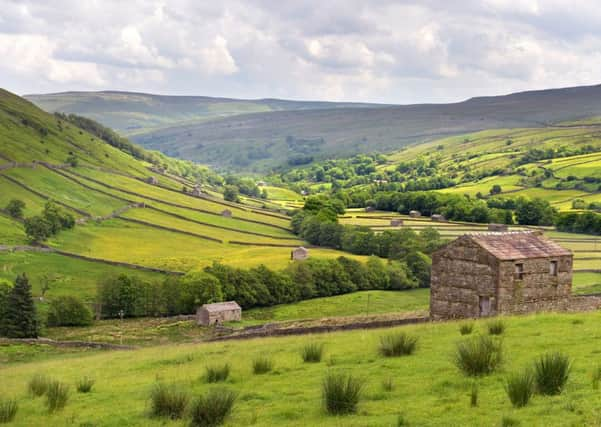'˜Ambitious new farm policy has to fit with Whitehall resources'


A history of administrative failure remains a burden for government agencies which may well be entrusted with delivering key parts of Whitehall’s blueprint for the industry after Britain leaves the European Union, Paul Temple said.
And with that in mind, the Government must settle on a new framework for farming that is realistically achievable, the Yorkshire Wolds farmer warned.
Advertisement
Hide AdAdvertisement
Hide AdThe comments by Mr Temple, who is chairman of the Agriculture and Horticulture Development Board’s cereals and oilseeds sector board, follow the recent consultation held by the Government on its Health and Harmony paper which set out a series of proposals to inform England’s first domestic agricultural policy since the early 1970s.
A wide range of organisations were among the 44,000 respondents to the consultation, including environmental NGOs whose agendas differ from core farming groups.
“We have a tight timeframe,” said Mr Temple when asked about the frustration expressed by other farming leaders over the lack of detail on post-Brexit farming policy - as reported in The Yorkshire Post yesterday.
“If we take the current situation, where we have really poor take up of the new Countryside Stewardship scheme and a breakdown in Natural England with late payments, and the Rural Payments Agency is still tidying up Basic Payments Scheme payments too, the focus has to be on what can be delivered, rather than trying to satisfy what everyone is asking for.”
Advertisement
Hide AdAdvertisement
Hide AdHe added: “The Government really needs to work with the resource that they have already got and deliver a new policy from that point on.”
Mr Temple was a speaker at a Westminster Food and Nutrition Forum seminar last week that explored the next steps for UK agriculture policy and he believes there is plenty to be optimistic about, regardless of the current level of political clarity.
“We have a huge opportunity in Yorkshire. We have great retailers and food processors and a big market on our doorstep, and people are increasingly interested in food. We have the ability to serve those needs but we have to be more customer focussed than in the past.”
There must be a clearer focus within the food and farming industry on what types of products shoppers are demanding, Mr Temple said.
Advertisement
Hide AdAdvertisement
Hide Ad“All our products are healthy, and Michael Gove at the Oxford Farming Conference pointed out how important food is to people’s health, but we have to break out of the mentality that the answer is a roast joint and fresh veg on a Sunday because people’s lifestyles have changed.
“There will always be opportunities when you are a net food importer,” Mr Temple went on to say.
“We don’t have to look to exports, we have to look at our own domestic market. Servicing that domestic market has to be the priority.”
Opportunities for, and challenges facing, the agricultural industry will be hotly debated at the Great Yorkshire Show in Harrogate which starts tomorrow.
Advertisement
Hide AdAdvertisement
Hide AdAhead of the show, the National Farmers’ Union said 49 per cent of 208 Yorkshire farmers who responded to its recent business confidence survey said their most pressing concerns related to volatility and uncertainty.